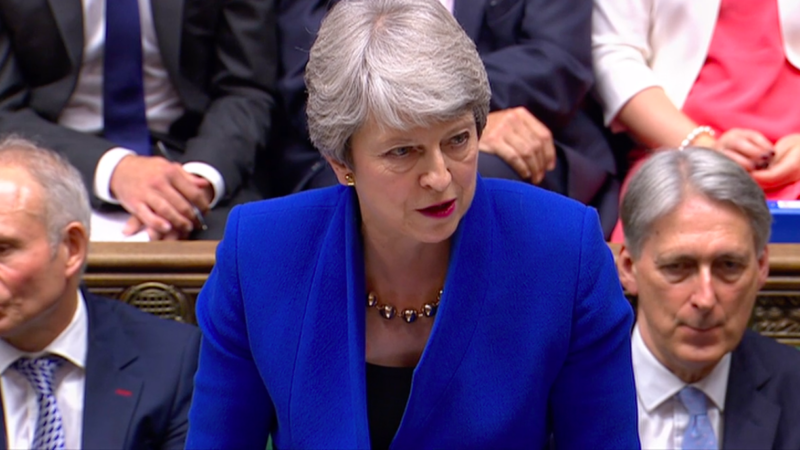
Theresa May’s final session of Prime Minister’s Questions had much in common with her preceding Wednesday 12pm turns at the despatch box, in that no light was shed and it was basically pretty boring. Her last day in office even featured the riposte that has come to be a May classic: you can’t complain about a no deal Brexit because you made it more likely by not approving my deal, which nobody liked.
Generously, after paying tribute to her “sense of public duty”, Jeremy Corbyn offered the outgoing PM an opportunity to list the policies of which she was most proud. Was it the cut in the stake on fixed odds-terminals, scrapping employment tribunal fees or setting up a funeral fund for bereaved parents? All of them, she said. Ah, but every one of those policies was in the 2017 Labour manifesto, the opposition leader replied. (It is worth noting here that two of these three were championed expertly by campaigning MP Carolyn Harris.)
May tried to reimagine her legacy as one of abundance and prosperity; raindrops on roses and whiskers on kittens. The truth is that she will be remembered as another Conservative Prime Minister who bit the dust thanks to their party’s long-running internal divisions over the EU. And if anyone does recall her record on domestic issues, it will be her inability to display compassion in public when the avoidable Grenfell fire killed 72 people, her broken promises on school funding and rough sleeping, and the total chaos of our broken housing market that has seen too many families in unsafe temporary accommodation and a generation of young people renting in the private sector with exorbitant costs and terrible conditions.
“At its heart, politics isn’t about exchanges across these dispatch boxes, nor about eloquent speeches or media headlines. Politics is about the difference we make, every day, to the lives of people up and down this country. They are our reason for being here, and we should never forget it,” May told the Commons at PMQs. The problem with that nicely phrased sentiment is that the differences she made are precisely the problem: implementing austerity that hit the most vulnerable hardest, forcing ordinary people to pay for the recession resulting from Thatcherite economics and opening the No10 door to Boris Johnson.




More from LabourList
‘Labour won’t stop the far right by changing leaders — only by proving what the left can deliver’
‘Cutting Welsh university funding would be economic vandalism, not reform’
Sadiq Khan signals he will stand for a fourth term as London Mayor